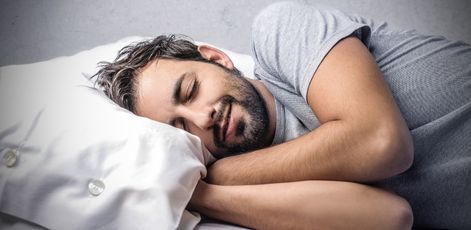Sleep Smarter: 5 Expert Tips for Deep, Restful Nights

Struggling to fall asleep? You’re not alone. Experts say that consistent sleep schedules, a cool, dark bedroom, and a calming bedtime routine are key to resetting your body’s internal clock. Getting daytime activity and natural light exposure also improves sleep quality. Meanwhile, avoiding stimulants, heavy meals, and late naps helps prevent disrupted rest.
Lack of sleep doesn’t just make you feel tired—it can impact your health in surprising ways. Studies from King’s College London found that poor sleep can make you eat 385 extra calories per day, affect your gut health, and increase pain sensitivity. Even one bad night can alter your blood chemistry.
Here are five science-backed strategies to help you sleep better tonight.
1. Stick to a Consistent Sleep-Wake Schedule
Going to bed and waking up at the same time every day, even on weekends, helps regulate your circadian rhythm — your body’s internal clock. According to the CDC, maintaining a routine reinforces healthy sleep patterns. A study in Oxford Academic found that older adults (85–105 years) with regular sleep schedules had better cardiovascular health, showing that sleep consistency benefits body and mind alike.
2. Create a Sleep-Friendly Environment and Pre-Bed Routine
Your surroundings and bedtime habits tell your brain when it’s time to rest. Keep your room cool, dark, and quiet, avoid screens, and skip heavy meals or stimulants close to bedtime. A short relaxation routine — like reading, stretching, or deep breathing — can cue your body to unwind naturally.
3. Get Regular Daytime Activity and Bright-Light Exposure
Daytime movement and sunlight help synchronize your body’s sleep-wake cycle. Harvard researchers note that physical activity boosts melatonin, the hormone that regulates sleep. Aim for outdoor time or exercise earlier in the day, as late-night workouts can delay sleep.
4. Avoid Stimulants and Late Naps
Caffeine and alcohol both interfere with sleep. Caffeine can reduce total sleep time, while alcohol may help you doze off initially but causes restless, poor-quality sleep later. Avoid long or late naps, which can confuse your internal clock and make it harder to fall asleep at night.
5. Reduce Blue Light Exposure in the Evening
Blue light from phones, tablets, and laptops signals your brain that it’s still daytime. A Journal of Applied Physiology (2011) study found that even brief blue light exposure suppresses melatonin, delaying sleep onset. Limit screen time at least one hour before bed, or use blue-light filters to protect your sleep cycle.
Note: This article is for educational purposes only and is not a substitute for professssional medical advice. Consult a qualified healthcare professional before making changes to your lifestyle, medication, or sleep routine.







